 When people hear the phrase ‘baby weight’, they often think of the extra pounds mamas hold after carrying a baby and then delivering them into this world. Contrary to popular belief, this is not what I am referring to. To me, I am referring to my baby’s physical weight. Never in my wildest dreams would I have imagined the hardships our family would face to get our children to eat. I always thought that once my baby’s intestines were back inside their belly, they would do all the things a “normal” baby does...aka EATING. It has been an extremely exhausting process - both mentally and physically - and I’m even getting teared up while writing about it. My eldest, Theo, struggled to gain weight in the hospital. I began pumping and he would receive my milk through a bottle. The next step was to fortify the breast milk to help him gain weight. But anytime he had a successful feed, he would vomit it all up and then some. We were feeding him every 2 hours around the clock. It was just horrible - at night the nurses advised me to wake him up by changing his diaper then using a cold cloth in hopes to heighten his alertness and thus consume more ounces of milk. Then every time Theo made weight gains, his milk volume would increase and the cycle would begin again. It felt like we could never catch up. I so desperately wanted to get the hell out of the hospital - mentally I wasn’t coping at all. The staff agreed that home would be a less stressful environment for everyone and hoped less stress would improve eating. Being discharged from the hospital is a surreal experience. You feel excited but with that comes so much guilt about leaving the other families that will be there for longer periods of time, or even worse the ones that don’t get to go home. And above all you’re terrified! When you’re in the hospital with your baby for long periods of time there are so many people checking your baby 24/7. When you go home you’re not only a new mother but also nurse. When we got home with Theo, he would drink only half of his small bottles. I continued to pump for a couple more months but he still wasn’t gaining weight. I decided to throw in the towel as our whole freezer was full of unused breast milk! We tried every medication for his reflux but he continued to constantly vomit. My day consisted of trying to get him to eat at the perfect time so he could get in the correct volume and subsequently being covered in vomit throughout the day. My husband was super supportive and tried to feed Theo as much as he could when home because of how stressful I found feeding. Everyone would tell me that Theo could sense my stress but this only made things more stressful. I kept asking myself: “I am his mother, why can’t I feed him?” My whole life revolved around getting a certain amount of ounces of milk into him my month and later G-tube, then reporting the information weekly to our nurse practitioner/pediatrician/family doctor. It was extremely frustrating because my husband would be able to calmly feed Theo and he would drink his whole bottle. It was so infuriating because I was the one that was producing the milk, I was the one that was home with him all the time and I was the one up with him constantly through the night but yet when daddy fed him a bottle he ate it all and went to sleep… Like what the hell!? The trauma from being in the hospital plus literally NO sleep at all left me in very bad shape. I couldn't understand why I could not get him to eat and felt like a complete failure. I was diagnosed with Post Traumatic Stress Disorder and severe PostPartum Depression. As mentioned in my bio, I am a fitness enthusiast! I thought I would be that mom that always comes with the perfect healthy snacks and have these amazing homemade recipes. Instead I was the mom with the unhealthy underweight baby. I wanted to be a mom so badly, but here I was feeling like I would get the “mom gene”. Despite my mental state, I was determined to join a mommy playgroup...right, is that what a good mother is supposed to do? It took everything I had to get to that playgroup, but I did it and ended up meeting a lifelong friend and many other fabulous mamas. But the thing about this mommy playgroup is obviously all you talk about is all things baby, which usually includes eating and growing. Everywhere I went it seemed that people always commented on my son’s size….even strangers! One of the worst memories I have is the first time I went to a singing class with Theo. I was so proud of myself for getting out the door and excited to be doing normal, non-hospitalized things. We went around the room and said our kid’s names and ages. I remember telling the group that my son was six months old and I can vividly remember the reaction of 2 other mothers in the group. I remember exactly what they look like, what they were wearing and their faces. I remember them grasp as their jaws hit the floor when I told them my son was only six months and approximately 10Ibs. They couldn’t believe how small he was. Then when you are not sleeping and you were plagued by the trauma you went through at the hospital, comments like these would put me over the edge. I felt like a failure and a horrible mother. I had dreadful thoughts about me and my baby, and struggled to connect to him. To read more about our feeding struggles and tube feeding, you can read the feeding and tube post on the blog. But I want to get back onto the topic of weight. As a woman it would be completely offensive to say to another woman after they’ve had a baby “oh wow, you’re still hanging onto a lot of baby weight”. For me, I would take the same offense when others called my baby small. When someone would make a comment regarding my child’s size it was not them matter-of-factly stating the fact that he was small, for me it meant he was small so he was sick. He didn’t have enough nutrients for his brain to grow, he could have to be admitted to the hospital again...and above all I am the biggest failure in the world for not being able to feed my kid. Looking back on it, of course my kids would be small! He was not held or fed through the mouth for 2 1/2 months. Of course my kids are going to be delayed at walking and crawling and moving their head as they were literally addicted to opioids for the first two months of their lives How to get through it when you’re in the thick of it:
Things that helped me were: 1) Getting my husband/family members to feed my son the bottle as much as possible without me being in the room. 2) Going to a friends house during meal time as he would usually eat better with other children around. 3) Asking help from grandparents for feeding, especially on the weekends. How to deal with negative feeding comments: When you’re in the baby phase, all you seem to talk about is how your baby sleeps, eats and & poops, and that’s pretty much it (or at least that’s all I heard). But when your child isn’t achieving these basic baby survival markers, and you are in constant communication with a medical team, simply hearing a conversation about another child’s positive weight gain, is enough to really put someone (ME) completely over the edge. I remember getting together with a group of my university friends that I hadn’t seen in a while for a play date. At this point Theo was being fed through his G-tube. During the playdate, everyone casually was feeding their babies and food was a huge topic of discussion. I remember leaving and driving home while connecting Theo to his G-tube in the car ride. I was bawling my eyes out. I was so angry and upset that my son had gone through so many obstacles and was still struggling with eating. He literally had a hole in his stomach to eat. One of my closest friends in the whole world called mem after the play date. She mentioned I seemed a little off and asked if I was home yet. I should’ve been home in about 45 minutes but the G-tube bag wasn’t distributing the milk properly and I had to stop many times on the way home to reconnect the bag. I would often give feed Theo small feeds in car rides because he was elevated in his car seat and this helped prevent reflux. I explained to her that I know it’s a normal thing to talk about eating but all we did was talk about eating and snacks and Theo doesn’t need anything right now through his mouth. I explained to her that I just feel so overwhelmed. She said so many wonderful things to me and reminded me that she had no idea how hard things must be for me. People like these are your tribe! Keep them close to you. and Despite them not fully getting what you’re going through, if they’re able to divert the conversation or simply acknowledge that talking about weight and feeding is a really triggering issue, these are the people you want to stick with. Unfortunately I have tried to talk to other people in my life about how these comments can be hurtful. To them they may might just think it’s a casual comment about their kid’s development, but to me it’s a constant reminder of what my kids have had to go gone through, and the worries I have still about their growth and development. The unfortunate thing about having medically complex children is the people you think will really understand you sometimes don’t, but sometimes people come into your life who are able to support you in unimaginable ways. Everyone’s got their crap and everyone’s got their story but as a friend you need to know your audience. My closest friends would never tell me about their kids' doctor’s appointments because they know that I’ve literally lived in and out of the hospital with both of my children for three years. It’s not that they don’t think I don’t care about them and their child, but they know and understand still grieving my experience. Tips: 1) Avoid situations where there is a lot of baby talk. Even if it is a baby shower, your mental health comes first! Celebrate with your friend with a private dinner date. If they are a true friend, they'll totally support you. 2) Remove people from your life that trigger your trauma and do not support you. Family or not - YOU have a family now and that comes first. 3) Consistently remind yourself of the GOOD and UNDERSTANDING people in your life. Stick with your tribe no matter how big or small.
2 Comments
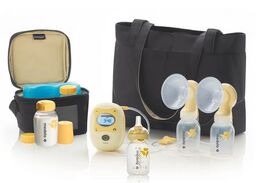 Chapter One: Pumping My son Theo was born with gastroschisis, a birth defect in which the intestines grow outside the baby’s body. As soon as my son was born, even before I was able to see him, the nurses started talking to me about pumping. I was literally told “Jessica, your only job is to pump right now”. Theo’s condition was very complex and I felt completely helpless as his mother. I felt that the only thing I could really do for my baby was to pump and I soon found that pumping consumed my life and became a source of my anxiety. In saying that, I don’t regret pumping by any means BUT….at the same time I look back and wonder why was that enormous pressure placed on me? Every mom has to make the decision that’s right for her and her baby and while I choose to pump, you need to do what’s right for you. My experience with feeding Theo was traumatic and while I’m not trying to scare other mom’s who may be experiencing similar struggles, I want to provide recommendations and suggestions for pumping/breastfeeding that I wish I someone shared with me. I’m not a medical professional so all recommendations are just based on my personal experience. STEP 1: GET A PUMP AND A PUMPING BRA!!! Prior to pregnancy, buy a high quality pump. Many insurance plans cover them with a doctor's note when you have a high risk pregnancy. If purchasing one is not an option, they can be rented for a reasonable price from the hospital where they are sterilized daily. Learn how to use the pump BEFORE the baby comes out. DADDY/your partner: LEARN how to clean and sterilize the kit (as that will be a huge help for mama). I definitely didn’t do that the first time; I was trying to pump while learning how to put the damn thing together and I had no clue what the hell I was doing. After an untraditional birth the last thing you want to be dealing with is how to use the pump correctly. Prior to your induction/due date, explore the pump! Attach the pump with the correct cords and play with the settings. Then put it on your boobs - TEST IT OUT! Learn how to attach the pumping bra to the pump. I didn’t use a pumping bra until I got home from the hospital with Theo and it was a total game changer as you are hands free! The first setting will probably be uncomfortable for a while. However, once your milk starts coming in, you will be able to increase the suction comfortably. STEP 2: Buy a sterilization kit. I bought one that went in the microwave and really liked it because it was compact and easy to use. There are also disposable bags you can use that are convenient when on the go. Have all of this ready to go in advance. 3. WHEN TO START: Once you are settled after the birth and feel somewhat composed, try to put the pump on your breasts. With Theo I produced NOTHING for about three days. I was panicking and felt like a failure. At the same time, NO one was encouraging my efforts and reminding me that my situation was nowhere close to a normal experience. OF COURSE my milk wasn’t coming in; my baby was in critical care, literally fighting for his life and I was stressed beyond belief. It is important to remember women’s milk supply usually comes in because moms typically hold the baby after birth. With the stress of having your baby covered in tubes and wires, followed by a perhaps undesirable birth, it is only natural that your body responds by saying, WHAT THE FFF?! WHERE’S THE BABY??? I’M CONFUSED! You’ll most likely be told to put the pump on your breast every two hours. As a natural rule follower, I became obsessed with my exclusive pumping role and being on-time to the very minute to pump. Well guess what….after giving birth you might not be able to walk, you might not even be staying in your house and pumping rooms are not always available at the hospital when you want to pump. So all you can do is try your best to pump on the two hour mark. If you're 20 minutes or an hour behind, take a breath, you’re living through unimaginable time with your baby and it’s fine to move at your own pace. The nurses and lactation consultants will be asking you about pumping. Some are kinder than others. Remember this is YOUR experience, NOT theirs. Listen to your body and just keep trying your best. SIDENOTE: I’m not sure why our society doesn’t talk about this but breast-feeding/pumping is hard! It’s so hard that there are specialized trained nurses whose main role is to teach women how to breast-feed. Don’t get me wrong, there are multiple important and amazing parts of breast-feeding but I think we should highlight that if it was so damn easy and natural, why is it someone’s career to just teach women how to do it? 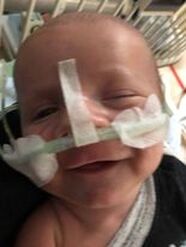 4. WHERE TO PUMP IN THE HOSPITAL: The NICU at Sick Kids is unimaginably small...hence the NEED for a new SickKids building. It’s recommended to pump by the bedside to improve milk production as you are in close proximity to your baby. Nurses can provide covers for privacy, don’t be afraid to ask. At first I was completely uncomfortable pumping by the bedside with Theo. I felt that the curtains didn’t give me enough privacy and I didn’t know what the hell I was doing. When my second born, Christian, was also born with gastroschisis and I found myself in the same situation, I often asked to pump by the bedside. I preferred it much more the second time around as I didn’t need to wait for a room, I could consistently pump on the approximate two hour mark during the day and I felt a little more connected to Christian when pumping. Also, the great thing about pumping beside the bedside is that you can provide mouth care to your baby immediately. Mouth care is provided when your baby is not receiving feedings by breast or bottle. You swab the inside of your baby’s mouth with small amounts of your colostrum then later breast milk. I really enjoyed doing this hands-on care for my boys and it helped me to feel connected to the boys and feeling like a mom. So many aspects of becoming a mom were taken away from me and this small experience helped me to feel like I was a mother and I could do something for my baby. Also my husband could participate in mouth care which provided a bonding experience for him as well. Both my boys did not receive milk from a bottle or breast until they were approximately two and a half months old. With regards to Theo, he went through a lot at the beginning; in the first four hours of his life, he needed an immediate surgery and my husband was told he may not make it. Doctors kept telling my husband and I that our son’s case was extremely complicated but after the first week, he started improving despite his unhealthy bowels outside his body. After the two week mark, we got a call in the middle of the night to come to the hospital right away. Theo needed a large blood transfusion and we were told he may not make it through the night. Later we were told he was septic, had E.Coli in his blood as well as a condition called NEC. NEC is a serious illness in very sick, usually premature newborns [Theo was not premature] but it happens when tissue in the large intestine (colon) becomes inflamed. No one knows what causes NEC. I remember finding out this information and looking at our core nurse practitioner at the time and saying: “This is bad… like this is really bad” She looked at me calmly and said “Jessica this is very bad but we’re treating it aggressively”. At this point in Theo’s journey, I was on auto-pilot and just kept pumping. During this whole time, no one said to me “Jessica it’s OK if you want to stop pumping”. No one once asked me how I was coping with all this while still managing to pump around the clock. The problem with having a critically ill baby is that everyone is taking care of the baby (which they obviously should be) but everyone forgets about the mama and her well-being and that is a huge problem. So I carried on and I continued pumping as I thought a diligent mother should. I started talking to other moms in the NICU and at Ronald McDonald House; we were all struggling with not sleeping due to stress, then when we could sleep, it was interrupted by our pumping schedule. So I started to test out longer stretches at night (which is forbidden in the pumping world) but it helped me get the restful sleep that I really needed. You do need to be very careful when you take longer stretches without pumping for the risk of infection. I found if I was able to get 7-8 pumps in during the day, I could go for a 6-7 hour stretch at night and then do a long pump in the morning. (And yes... you would probably never get a 7 hour sleep with a newborn but the fatigue of living in a hospital is unimaginably draining). 5. IF THE BABY ISN’T HAVING BREAST MILK OR FORMULA, WHAT IS IT “EATING?”: Babies who cannot orally feed are provided with TPN (Total Parenteral Nutrition) which is a mixture of vitamins that are altered each day to meet the changing needs of the baby. As well, the baby is fed Lipids which are a combination of fats for their body and brain to grow. Both TNP and Lipids were fed to the baby via their PICC line (refer to the what to expect section). SIDENOTE: At the two & a half month mark, Theo was still not consuming breast milk orally. Luckily, I had started producing healthy volumes of milk and I had a ton of breastmilk stocked up! So much so, that we were told by the freezer department of the hospital that we had to come and collect my milk because they had no more room for it. We actually had to buy a deep freezer for all the milk I had pumped! I am NOT mentioning that to gloat, but I am not pointing this out because I had A LOT of milk frozen and Theo was still NOT eating. I wondered again WHY was there so much pressure to keep pumping??? Why didn’t any health professional consult with me about my pumping? Why didn’t any health professional allude to the fact that Theo may eventually need formula to supplement with as he was gaining weight at an extremely slow rate. Regardless, I kept pumping. I truly believed that if I stopped I was a horrible and selfish mother. I was exhausted, mentally, physically and emotionally and now officially felt like a cow. 6. WHEN AND HOW TO START BREAST-FEEDING (if you can): Once your little babe starts successfully feeding from a bottle (and keeping it down), you may be encouraged to try breastfeeding. With Theo, my experience was extremely negative. Two years later with Christian, I found the hospital as a whole was collectively trying to promote breastfeeding (even if it was the smallest amounts) as soon as the baby was able to intake milk despite the range of health issues facing the baby. When I was on the surgical floor with Theo, the surgery team came by one morning on rounds and asked if I had tried breast-feeding. I said no I haven’t… “Like I’m just supposed to put him to my boob and he’ll eat?” The doctors casually looked at me and said “yeah”, just put him on your breast and see what happens”. Well needless to say that was a terrible idea, not to mention really traumatic. I was still learning and struggling to bond with Theo and this situation only added to my stress; I had no clue what I was doing and neither did Theo! At the time I felt like a complete failure. I had worked SO hard to establish a good milk supply to breast-feed and here I was trying to feed my baby and FAILING. This initial experience was so disappointing because I was not set up for success and if managed differently, it could have been far less traumatic. With Christian, I was encouraged to try breast-feeding as soon as he could start feeding orally. Even though Christian had a Nasel Cannula (basically tubes in his nose help to increase airflow), the lactation consultant encouraged and helped me place him on my breast even just for a couple minutes at a time. Then, as he was physically able to take in more milk and I became more comfortable, we slowly increased length. When trying breastfeeding for the first time, have a nurse or lactation consultant with you. They may not be available for your feeding/pumping schedule, but having support usually helps. If you need to wait, WAIT a feed and try at the next one with assistance. You may not always like who you get to work with; that's okay; ask for someone else! 7. PROCESS TO FEEDING AT HOME: THEO: When Theo started to intake larger volumes of milk, his reflux became out of control and he would vomit more than he would consume. Every time he would make small gains in consuming the correct amount of breastmilk, the volumes he would need to consume would increase as he was slowly getting bigger. This was exhausting and super stressful! I was alone in a small room and my only job was to feed my kid and he wouldn’t freaking eat. Feeding my kids will probably haunt me until the day I die. Theo definitely could feel the stress from me when feeding him and as a result, he ate better for my husband, family members or nurses who fed him and of course this REALLY PISSED ME OFF! It was my breast milk! I was his mother! Everyone else was feeding him better than I could and this only made me more depressed and anxious and less connected to Theo. At 4 months we were discharged with my copious amounts of frozen breast milk that we had to end up fortifying with formula to add needed calories to Theo’s diet. And guess what...I was advised to keep pumping at home! Don’t you think one brilliant mind could have mentioned: “Hey, Jessica, you have a shit ton of breast milk - why don’t you stop pumping so it’s one less thing for you to worry about when you get home”? Theo eventually needed an NG Tube and later a G-Tube to support his feeding. This experience is included in the TUBE feeding section. CHRISTAIN: Christian was able to breast-feed and progressed very well. As, mentioned prior, the whole team encouraged and positively supported me through the process. I would try to spend the WHOLE day at the bedside to improve breast-feeding independently. At the beginning, the nurses and I would weigh Christian before and after his feeds to see how much he ate (it literally was as suspenseful as The Biggest Loser TV Show weigh ins!). Christian was taking in the adequate volumes of milk throughout the day and night. Later, I would sleep overnight in the pumping rooms (which are outrageously unforgettable) and the nurses would call me at night to practice “on-demand” feeding (feeding when the baby wants to feed), opposed to feeding by the hour. I believe Christian was discharged directly from the NICU because, unlike Theo, there was less focus on a specific amount of milk consumed at each feed. It is also important to note that Christian’s gastroschisis was far less complex than his big brother’s and did typically feed well. With bottle feeding, it’s easier to see the amount of milk consumed than when exclusively breast-feeding as you are assuming the baby has eaten enough based on their mood and sleep. Unfortunately, despite all my best efforts, I stopped breastfeeding and pumping a month after being home. In the TUBE FEEDING section, I explain how I was in constant communication with medical staff regarding Theo’s milk consumption and despite the nurses reassuring me that Christian was feeding like a “typical” baby, I mentally couldn’t handle not knowing how much or little he was taking in. At the end of day, I truly believe a physically, emotionally and mentally HEALTHY mom is BEST for your baby and if that doesn’t include pumping or breastfeeding...THAT’S OKAY. Whether your baby is bottle fed with breast milk, bottle fed with fortified breast milk, bottle fed with no name formula, bottle fed with organic top of the line blah, blah, blah formula or breastfed...guess what - they are fed! What matters is that your baby is eating and growing...end then! |
To navigate the BTB blog, you can scroll through the posts, or if you're looking for something specific - you can click on a category below & it will take you to related posts!
••• k Archives
September 2022
Categories
All
|
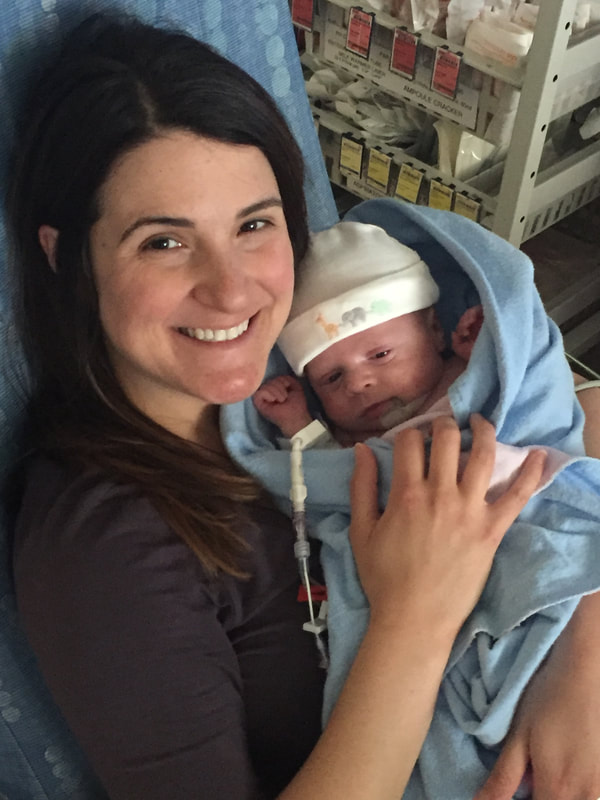
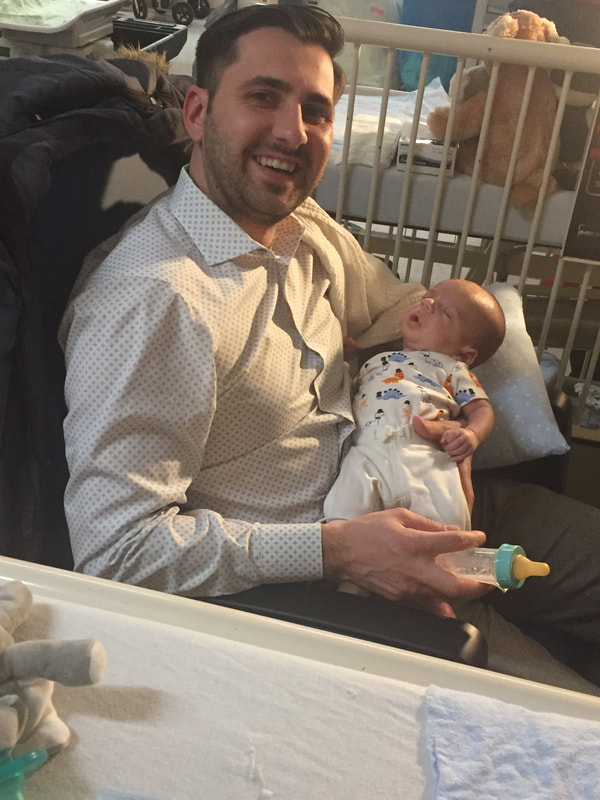
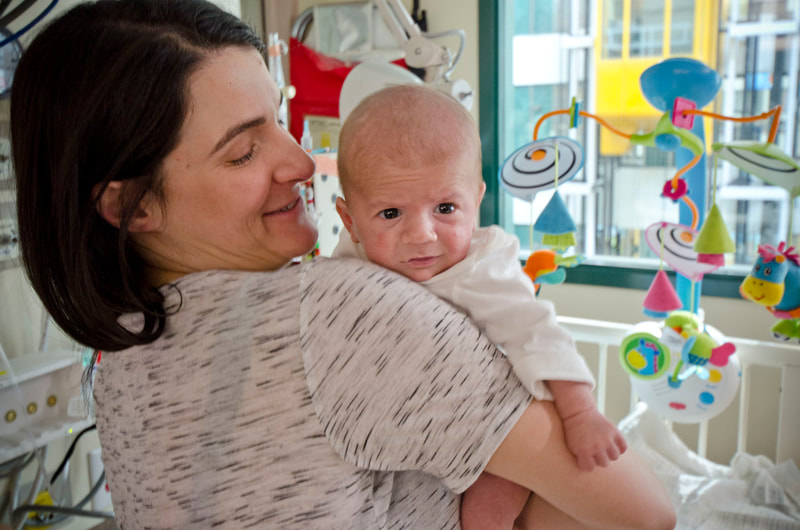
 RSS Feed
RSS Feed